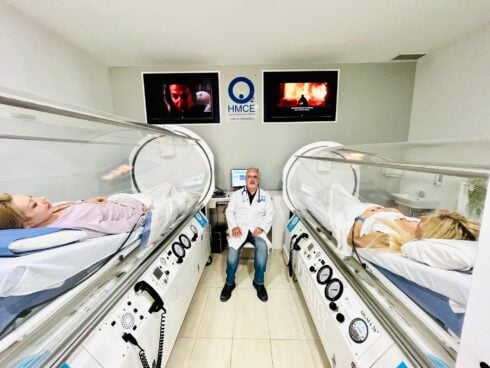NEED more vitamins? A research team in Spain has created a ‘revolutionary’ golden lettuce with over 30 times more vitamin A than normal.
A Spanish research group has created a ‘golden super lettuce’ in a ‘revolutionary’ achievement.

The project was a joint effort between the Universitat Politecnica de Valencia and the Molecular Biology and Plant Cell Institute.
“This is a revolutionary step forward in the biofortification of plants by increasing the amount of healthy chemicals in them,” they said.
The new lettuces have a high amount of beta-carotene, a key source of vitamin A.
It is important for eye health, strengthening the immune system and skin health and is one of the essential micronutrients lacking in many diets, especially in regions where vitamin A deficiency is common.
Beta-carotenes, pigments that give plants their colour, are also antioxidants and stimulate cognitive function.
Researchers achieved the ‘super lettuce’ by first experimenting on tobacco and lettuce plants.
Through advanced biotechnology techniques and the use of intense light treatments, they succeeded in multiplying the level of beta-carotene by up to 30.
Not only this, but they achieved the feat without damaging the photosynthesis process, which can be put under pressure by excess beta-carotenes.
They did this by increasing the levels of the chemical in cells that do not affect the photosynthesis process.
The results show that it is possible to store large amounts of beta-carotene in the plastoglobules, small sacs normally found in plant cells.
Normally, they do not take part in the photosynthesis process or store carotenes, but researchers were able to stimulate them to do so with the use of intense light.
This approach not only allows the lettuce to accumulate large amounts of beta-carotene but also improves its ability to be absorbed by the digestive system.
In this way, the health benefits are maximised.
It is a great example of biofortification, a technique that seeks to improve the nutritional value of foods through genetic modification or improvement of agricultural techniques.
According to the researchers, the discovery that beta-carotene can be produced and stored in unusual locations within the plant, without affecting its flavor or aroma, represents a key advance for nutrition and public health and can be applied to other plants like kale and spinach.
This breakthrough was published in Plant Journal and marks a milestone in agricultural science and biotechnology, with applications that could improve the quality of life for millions of people around the world.
Click here to read more Spain News from The Olive Press.








